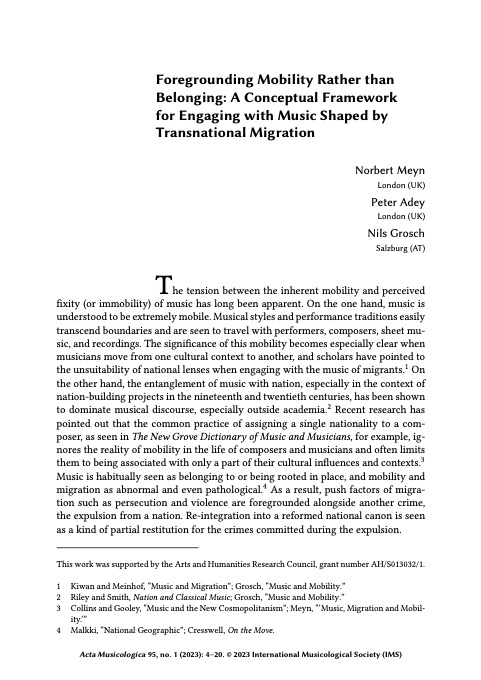Abstract
Drawing on interdisciplinary research about the legacies of musicians who emigrated to Britain from Germany and Austria in the 1930s, this article considers the engagement in scholarship and musical practice with the work of composers and musicians who do not fit into traditional categories of national belonging because their lives and careers were shaped by migration, displacement, and transnational mobility. Based on our study of a well-documented and influential group of migrant musicians through historical musicological research, artistic research (reflective performance), and perspectives from human geography, we propose a conceptual shift from immobility to mobility (sometimes “mobilities” and “(im)mobilities”) in order to unlock and reevaluate the often hidden and marginalized legacies and repertoires of migrant musicians, especially those relating to their post-migratory activities. We reference the work of organizations dedicated to the reclamation of the musical contributions of this group of migrant musicians and consider how they have dealt with questions of mobility and belonging. We also examine a recent shift in musicology which has begun to enact a move toward embracing mobility as normal rather than pathological and discuss the nature, history and implications of the “New Mobilities Paradigm” (Sheller and Urry, “The New Mobilities Paradigm”) in detail, drawing on a wide range of research that has direct bearings on the subject of music and migration, especially given the inherent mobility of music as an art form. We then consider how enacting the proposed conceptual shift can influence musical practice, reflecting on recent performances of English songs by Karl Rankl (1898–1968), written in Oxford in 1942/43, and highlighting the need for connecting artistic with ethical and societal considerations in order to assess value and facilitate successful advocacy.

